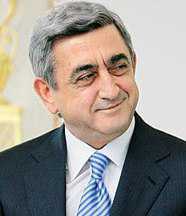Paul Goble
Vienna, December 15 – Many Circassians have expected Turkey, the place where the largest number of them now live, to back their efforts to secure justice in their homeland, but Turkey’s geopolitical aspirations and domestic situation, together with Russia’s ability to play on both, severely limit Ankara’s ability to play that role, one analyst suggests.
On the one hand, Murat Kardanov writes in the Prague-based “Caucasus Times,” Turkey’s limitations as an ally has forced the Circassians to turn to others such as the Georgians, the Europeans and the Americans, none of whom are as constrained as the Turks, to try to gain support for their national cause (www.caucasustimes.com/article.asp?id=20643).
And on the other, precisely because Turkey is potentially such a big player in the North Caucasus but can find itself checkmated by Russian moves, the Circassians currently face some serious problems in building the garnering the kind of international support they need to boost their national movement to the next level.
None of this means that the Circassians cannot be successful in gaining backing for their campaign against holding the 2014 Olympics on the site of the genocide Russian authorities inflicted on them, but Turkey’s position means that the Circassians will have to seek a different coalition of countries than they expected to secure their larger goals.
In his article, Kardanov outlines the reasons why Turkey, despite the presence of a large Circassian diaspora and the role its members play in the Turkish armed forces, is unlikely to be the ally Circassians had hoped for, in part because of Turkish aspirations and complexes and in part because the Russians are able to play on both.
First of all, Turkey is extremely reluctant to press for Russian recognition of the genocide of the Circassians because that could increase the pressure on Ankara to acknowledge the 1915 mass murder of Armenians in the Ottoman Empire as a genocide, something the Turks are still loathe to do.
Second, Turkey, Kardanov continues, Turkey is unwilling to play an ethnic card against the Russians because it recognizes that the Russians could play an ethnic card back against them and probably with greater success. Turkish-Russian rapprochement in recent years has limited Moscow’s support for the Kurdish movement in Turkey, but that could change overnight.
And third, the analyst continues, Turkey seeks to be a player in the larger geopolitics of the Caucasus and Central Asia, a possibility that requires some level of cooperation with Moscow and that many in Ankara believe would be undercut if the Turks became more heavily involved in “ethnic” issues that offend Moscow’s sensibilities.
Moscow has long counted on these aspects of the situation to limit the ability of the Circassians in the North Caucasus to push for justice. The Russian powers that be have until recently largely ignored the Circassian issue and that has led to the politicization of that issue in the North Caucasus.
Until a few years ago, Kardanov writes, Circassian demands were primarily of “a social and economic character,” but because the Russian powers that be have tended to ago them, “today these demands have been transformed into political slogans.” And the Circassians are hoping to move to the next level by building international alliances.
In response, Russia has done two things: It has signaled to the Turks that Moscow has the capacity to cause trouble for Turkey if Ankara tries to get involved, and it has sought to “lower the level of tension in the Circassian direction by means of a series of small measures,” including some possibilities for repatriation and the creation of “alternative” Circassian organizations.
As has long been Russian practice when it cannot take over or destroy an existing organization it does not like, Moscow has taken the lead in creating alternative ones “in Turkey and Russia that are under the control of Moscow and Ankara,” institutions that at the very least can muddy the waters around an issue many know little about.
That Russian strategy is very much in evidence in Turkey. “Many years ago,” Kardanov says, “the Circassian diaspora [there] was caught” by it and signed on to the idea that the Circassians were part of a general “Caucasus diaspora,” which included the Avars, the Abkhaza, and the Chechens.
That allowed Ankara to provide this community with assistance “under ‘an all-Caucasus roof.’” But “today they Circassians are moving out from under this roo in order to consolidate and focus on their own problems.” If the community remained united, that would have one set of consequences, but if Moscow can divide it, the consequences will be very different.
At present and given the geopolitical and domestic political situation of Turkey, “the effectiveness of the Circassian quesiton in the first instance depends on the Circassian diaspora itself,” a diaspora that like all diasporas is far from unified and whose divisions can be exploited by interested parties.
Given Russian opposition to the Circassian movement and its calls for simple national justice, it is likely that Moscow will continue to call Turkey’s attention to the difficulties it will bring upon itself by helping the Circassians and to seek to split up still further the Circassians of Turkey and the world.
Such efforts by the Russian powers that be have yet another consequence, one that Moscow also desires. By building up alternative spokesmen within the Circassian movement, the Russian side creates confusion among the Circassians and also among even sympathetic observers who are increasingly unsure of what is going on.
This trend is thus a real threat to the Circassian cause, but in another sense, it shows just how seriously Moscow now takes the Circassian cause and the ability of Circassian activists to speak to the conscience of the world about the genocide that was inflicted on them in precisely the same place Vladimir Putin wants to stage a sporting event.






